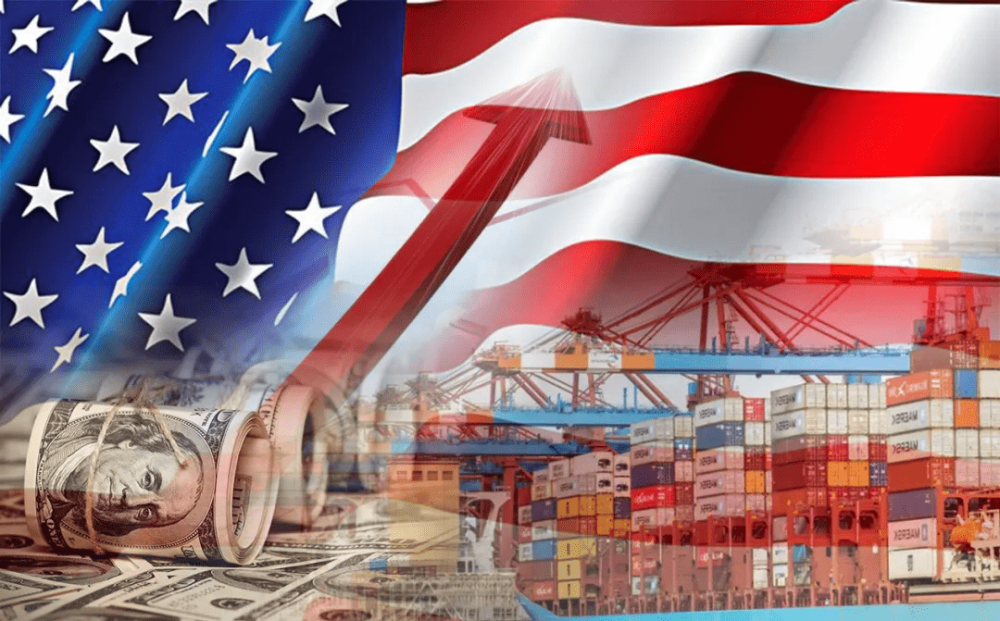
Recently, in response to the United States once again deviating from the free trade consensus on the TikTok ban and steel trading case, the Wall Street Journal website published an article entitled "The United States further deviates from the free trade consensus", saying that "the US political sector's tough measures against two foreign companies in the past week show that the United States is no longer embracing the world with an open attitude." "Both parties are now pursuing nationalist and protectionist policies that are chilling foreign investors and companies doing business in the US."
In recent years, the United States has adopted a series of protectionist measures in its trade policy aimed at protecting its own industries and enterprises and reducing its dependence on foreign products. Its specific performance is mainly in the following aspects.
On the one hand, it is reflected in the tariff policy. The United States tries to protect its domestic industry from the impact of imported goods by levying high tariffs. However, while this approach may protect the domestic industry in the short term, it may lead to an increase in the cost of living for consumers in the long run, affecting the competitiveness and economic efficiency of the domestic market.
On the other hand, in export control, the United States restricts the export of specific commodities to certain countries or regions in order to maintain its competitive advantage in this field. Such measures, while helpful in maintaining national security, could also trigger retaliatory actions by other countries, leading to a trade war and negatively impacting the global economy.
In addition, the United States uses trade remedy measures to address unfair trade practices. These measures, which could include tariffs and quotas, are designed to protect domestic industries from unfair competition. However, these measures could also spark trade disputes and lead to tensions in international trade relations.
For the growing trade protectionism in the United States, the reasons behind it are worth thinking about. So why is the US so keen on protectionism?
First, from a historical perspective, the United States has a long history of being a "protectionist nation." Protectionism and isolationism have dominated American politics since independence. Especially after the Civil War, the Republican Party, representing the northern industrial interests, came to power continuously, and the trade protectionism policy of high tariffs continued and became the basic national policy of the United States.
Secondly, economic factors are also important reasons. The United States protects its pillar industries and infant industries through measures such as high tariffs and infrastructure construction, in order to promote the development of domestic industries and enhance international competitiveness. Such a policy is aimed at the overall protection of national economic interests.
Third, political factors cannot be ignored. The Constitution of the United States gives Congress the power to levy taxes and set tariffs, and the use of these powers often reflects the political interests and strategic goals of the country at the time. For example, Article I, Section 8 of the United States Constitution provides for the power of Congress over taxes and tariffs, provisions that reflect the importance early American leaders placed on protecting the domestic market and promoting national development.
Finally, strategic considerations are also important. The United States has adjusted its trade policy according to domestic and foreign economic and political conditions in different historical periods. For example, during the great world economic crisis of the 1930s, the United States raised tariffs through the Smoot-Hawley Tariff Act, not only to protect domestic industry, but also to meet the challenges of a global economic downturn.
In general, the growing trade protectionism in the United States is a complex economic and political phenomenon. In the context of globalization, the economic links between countries have become increasingly close, and trade exchanges have become more frequent. However, US trade protectionism has had a serious negative impact on the global trading system, leading to increased trade frictions and economic uncertainties, enough to cause concern. All countries in the world should take multi-faceted measures to safeguard their own economic interests and promote global economic stability and development.

Amidst the global wave of technological transformation, artificial intelligence (AI) has become a key focus of competition among major tech giants.
Amidst the global wave of technological transformation, art…
In January 2026, the remarks by US Treasury Secretary Besse…
Less than three weeks into 2026, transatlantic trade relati…
On January 17, 2026, the Trump administration, under the pr…
When Musk set the goal of achieving a launch frequency of m…
A week after the largest nationwide protests in years, the …